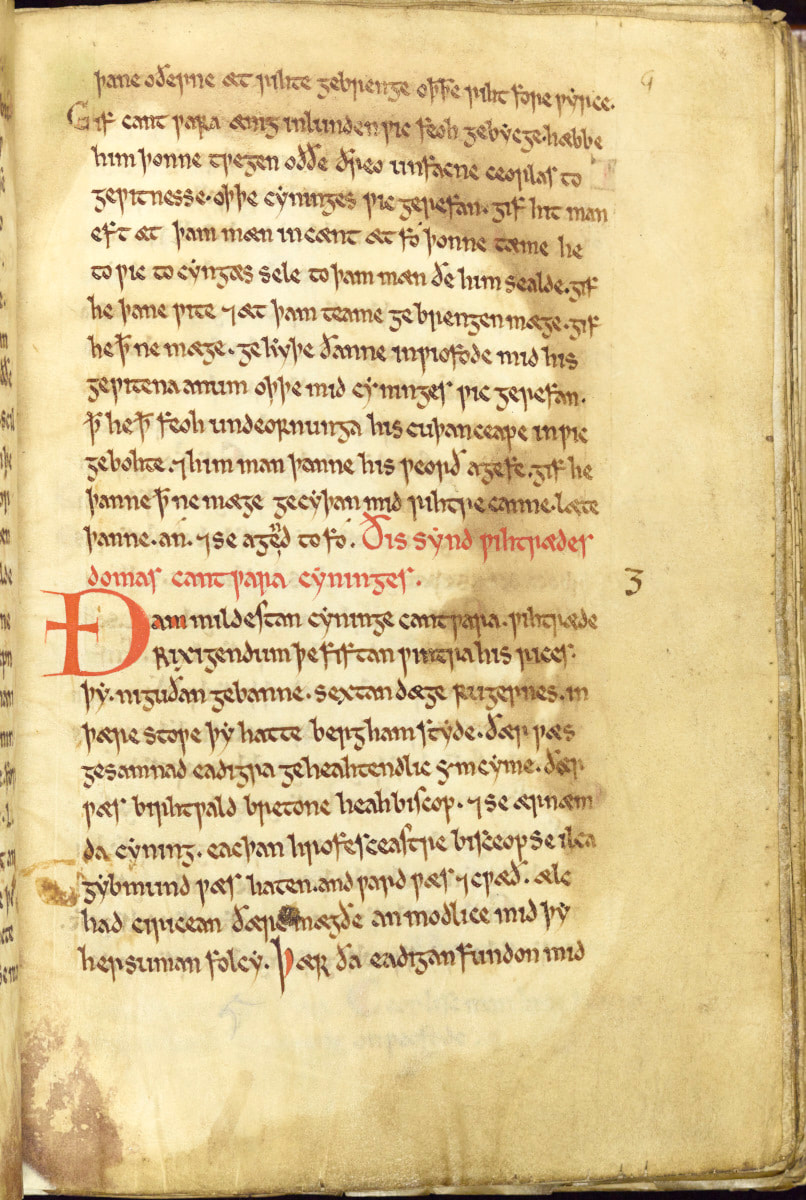New translation of the law code of King Wihtræd of Kent Blessed ones, It has not yet been a week and yet I am returning with the news of another translation by Dr Monk – the less than virtuous fellow with whom I share this blog. This time, beloved souls, it is the third and final law from the Kingdom of Kent: the Laws of Wihtræd. Even I don’t know that much about King Wihtræd. But I can say that he ruled Kent for quite a long time, from either 690 or 691, of the year of our Lord, to his death on the 23rd April 725. For the first couple of years, or so, he was having to share the throne with a certain Swæfheard, an impertinent invader from the kingdom of the East Saxons, whose father ruled part of that kingdom and, as it happens, became a monk after 30 years of rule. A decent fellow, obviously. But I don’t much care for his son. Anyhow, back to King Wihtræd… And what I have to say is that the laws of this good king reveal to us that he was very concerned about the Church and the practice of the Christian faith among his people. May we all be like good king Wihtræd! We find right at the outset of his decrees that the Church was to be free from taxation. Did that really need to be written down, I ask? And then there are rulings against worshipping ‘devils’ – oh my! - and judgements concerning the breaking of Church laws on fasting and the Sabbath day. Oh, Heaven preserve us! King Witty – I’m sure he would forgive my mildly impudent familiarity – even goes as far as to encourage folk to dob in their neighbours! Should someone actually ‘discover’ their neighbour has been working on the Sabbath – the Lord’s day of rest – then, if he does the dobbing in, he gets to keep half of the fine that was destined for the public coffers. I reckon I would be shillings in if we had that rule in and around my monastery. But I digress. The final fascinating thing I wish to share with you about this set of laws comes from Dr Monk, and really there’s no surprise that it relates to fornication! Yes, he knows more than he should about this subject (see the link, below). Leaving that aside, I should say that Dr Monk kindly informed me that Wihtraed’s laws are the first among the surviving early English laws to (attempt to) regulate the unriht hæmed – that’s ‘unlawful sexual union’ to you. That would have meant that folk who married someone to whom they were too closely related were in big trouble – no marrying of cousins, that’s for sure, and maybe not even your second cousin once removed! I don’t even know who my second cousin first removed is. And as for those who dared to commit bigamy – sending their spouse away just because they wanted a new one – well the fires of Gehenna were not sufficiently hot for them. Alright, Wihtræd didn’t quite put it like that, but you know what I mean. Well, before I tell you everything that is in this set of Kentish laws, I should direct you to where you can find Dr Monk’s translation. Included is a transcription-edition of the text and numerous notes. There are always loads of those. May you all be blessed – and no unlawful unions, now! I will find out! Postscript Oh, if you fancy reading more about unlawful sexual unions, a free journal article by Dr Monk is available here. And if you would like to show your appreciation and support for the research that goes into this website you can make a one-time donation on the Buy Me A Coffee tab. Thank you.
2 Comments
NK
25/7/2022 09:21:39 pm
Awesome blog !
Reply
Christopher Monk
26/7/2022 06:34:27 pm
Thank you. May you be blessed.
Reply
Your comment will be posted after it is approved.
Leave a Reply. |
Details
|


